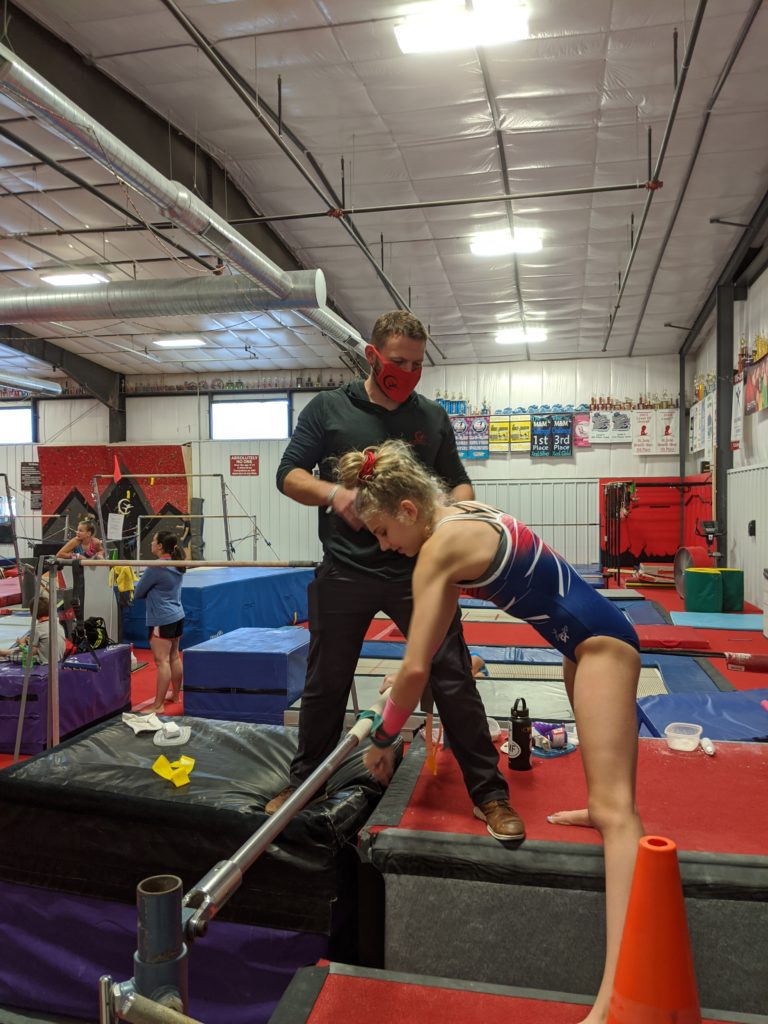Coaching Kids in Difficult Times
Recently we distributed a guide to our coaches to help them deal with the children in our training program who may be exhibiting concerns during this resurgence of Covid regulations. Our coaches see the kids sometime more during the week than their parents might.. Many of the athletes have experienced higher levels of stress and anxiety, depression, or even fully withdrawn from training. As I read through my memo, I realized how much this made sense to me as a parent, as well as a coach. Here are the points we made to our coaches:

- Periodically check in on your gymnast’s needs. Be aware of nagging injury, irregular sleep patterns, or questionable nutrition. A simple conversation to assess concerns is encouraged. Anything that seems to be potentially abnormal should be shared with parents who can then address concerns within the family. Utilize our recommendations for professionals who can address these concerns. Be a resource and share recommendations with parents.
- Explain to your teams that wearing a mask during training is necessary for protecting the little kids who look up to them. Exhibiting good behavior is essential to being a positive role model. We are all role models.
- Be prepared to allow kids additional time to process corrections and instruction. Due to the stress and anxiety some kids are dealing with, we will need to be patient and explain technical instructions using audible, visual, and tactile methods of input.
- Not only do you instruct, but you are also there to support and develop the gymnast as a person. Understand that instead of just coaching, you will need to make positive comments about things outside of gymnastics. Remember the sandwich method: Positive comment -correction- positive summary can apply to more than just skill development.
- When you see your athlete getting frustrated, be sure that you take a breath before reacting. Frequent frustrations for a gymnast can seem like being off task to us. Be sure you can identify which is which.
- Always share with the parents when you feel the child is feeling out of sorts. That could be exhibiting fatigue, frustration, anger, anti-social, overly social (manic) behavior, or mysterious aches and pains.
- Allow the kids to be emotional and express themselves. Always address the emotion they are dealing with; “It seems you are getting frustrated.” Or “I feel like you are getting upset about this skill”, “What are you focused on right now?” This gentle nudging may allow them to realize their focus is off and can modify themselves without further correction regarding the stress. Allow them to help you develop a strategy for improving the working attitude. Be patient, always listen before talking.
- The water fountain has healing properties. Sending them to get a drink and regroup can be a great tool to stem frustration. Always be sure to process their concerns when they have returned.
Understand that we are not trained to be therapists or counselors, but the kids might find it easier to talk with us than such a person. We see the team kids many hours each week and may be aware of anxiety red flags before they show up at home. We should always share concerns with the parents and develop a team approach to bringing the child back into the positivity of training.

